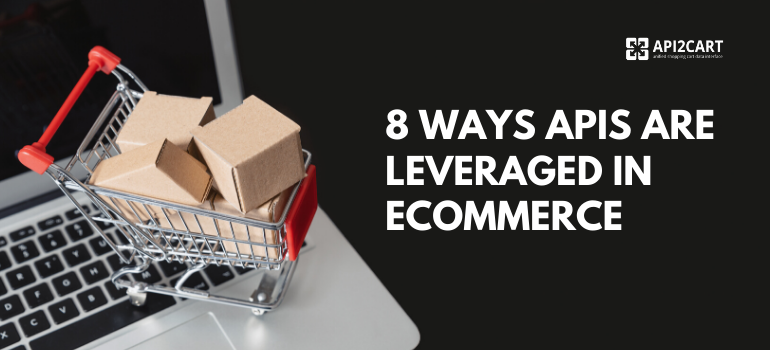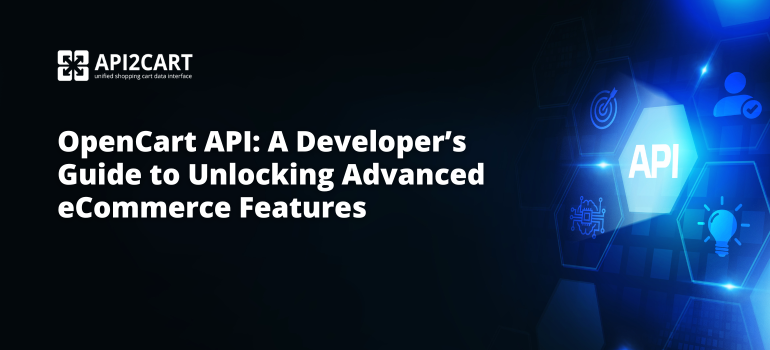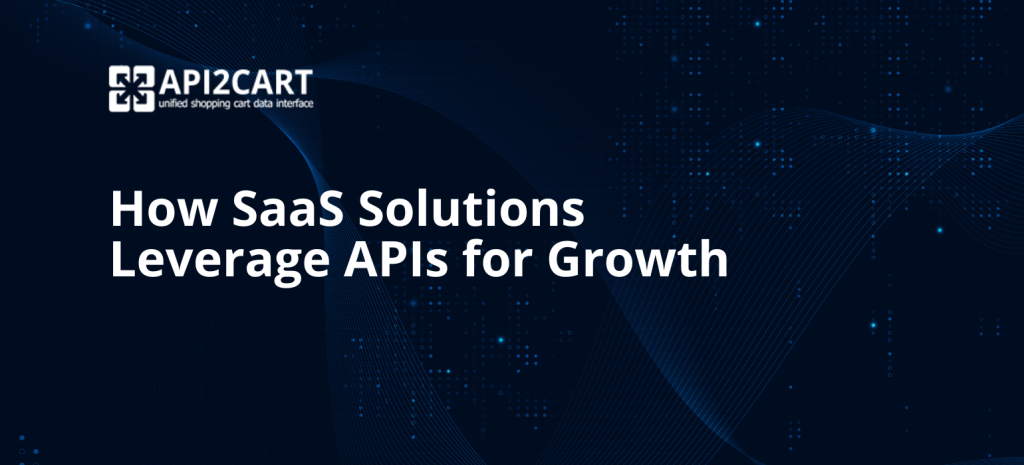
The modern world of commerce is highly data-driven and interdependent, and it is especially true of the e-commerce ecosystem, which involves tight collaboration with numerous partners, suppliers, and software vendors. Besides, industry players need connectivity to get data that would help them better understand customers, anticipate their preferences, and deliver “contextual” shopping experience.
Contextual commerce means making product/service offer to the right people at the right time and at the right place. But to be able to act so proactively and swiftly, entrepreneurs need to get the data about their potential clients and their needs.
API is that technology that helps e-commerce entrepreneurs get and transform a whole bunch of user data into practical, actionable business intelligence. API integration is what can provide connectivity across different computer systems. They also help retailers to be visible for shoppers and send right messages on the right device at the right time.
Regardless of the level of tech-savviness, every self-respecting e-commerce vendor needs to understand APIs and their role in providing a better shopping experience for their customers and enhancing the sales funnel. Here are 8 ways that online retailers are using APIs in their businesses:
1. Social Media Buttons APIs
Bringing social media buttons to the e-commerce site can help to promote marketing content, boost traffic, grow blog audience, and enhance product trustworthiness. For example, enabling share buttons across the website will make it easier for visitors to like and share the content; by embedding comments, reviews, likes, and shares from social media you can show that other like and trust your products or service.
Brands can also use APIs to stream feeds of photos featuring their products or feedbacks published on social media networks.
2. Site Search APIs
Advanced search plays a crucial role in the success of many e-commerce sites, especially those offering a vast assortment of products and services. It ensures that items that are potentially interesting for visitors will not be missed.
By installing a site search API onto the website, retailers with extensive content pages will improve the shopping experience for customers dramatically. Thus, visitors will not have to wade through oodles of web pages when looking for particular items or detailed content.
3. Personalization and Recommendation APIs
Personalization and recommendation APIs are valuable targeting tools that can be used in various ways in e-commerce. All in all, recommendation and personalization engines collect data about customer activity on web stores and use algorithms to make personalized content suggestions.
The main benefit of personalization APIs is that they help retailers to wisely manage their website content to better fit the needs of every site visitor: Make dynamic product suggestions on the website, implement infinite scroll articles and lightboxes triggered on user activities and behaviors, send relevant push notifications.
Also, with the help of personalization APIs, retailers can segment their customers to ensure that each of them will get sales emails and newsletters with the right content, at the right time.
4. Marketing Automation APIs
Marketing automation APIs make it possible to brings together various tools used for marketing and facilitate and organize marketing processes. They eliminate the need to manually move data around by establishing the connection between the endpoints. For example, with the help of marketing APIs you can have your site customers automatically added to email marketing lists and grouped by what they bought or how much they spent on the web store.
5. Shipping APIs
As a retail business grows and the number of orders increases, there arises the need to automate the order processing and shipping routines. That is where shipping and delivery APIs come in handy, as they can help minimize errors and the scope of manual work. With the help of these APIs, merchants can automate processes from the point of sale to the point of delivery. For example, after a purchase has been made on the website, the shipping API signals to the trigger that a certain product should be taken from warehouse and be sent to the customer.
6. Price comparison APIs
Merchants use price comparison APIs to monitor competitors’ prices and optimize theirs. Retailers can link product catalog to a price comparison API and receive automatic reports comparing their product prices to those of competitors. With the help of this API, price comparison engines can analyze this information and automatically change their prices.
7. Anti-fraud APIs
With help of anti-fraud APIs, online store owners can protect their stores from various types of fraud. Such APIs can screen orders transacted using credit cards, regulate traffic by blocking poor quality connections (proxies, Tor, VPNs, etc), verify the existence of an email address, etc.
8. Product and Order data APIs
Example: API2Cart
Product data APIs are used mostly by B2B e-commerce software services, including some of the listed above. For example, using product APIs, inventory management systems can retrieve and use data on products, orders, customers, etc to automate and streamline inventory routine. To create an m-store, mobile app builders connect it with web-based store using product data API. Order fulfillment software also need access to product, customer and order data to be able to organize order fulfilment for retailers.
Product data APIs connect shopping cart, on which web stores are built with the system that access to the info from the web stores. The process of API integration is long and tedious, especially when it comes to establishing connection with many shopping carts. Those who value their time and money can integrate via a unified shopping cart API, offered by API2Cart. This API enables to connect to 60+ shopping carts.
If you are interested in integrating your B2B solution with many shopping carts and would like to talk about the technical details, please schedule a consultation with our representative or try how API2Cart would work for your business.
Have we missed anything? Do you know about any other ways to leverage API in e-commerce? Write your suggestions in the comments below.



